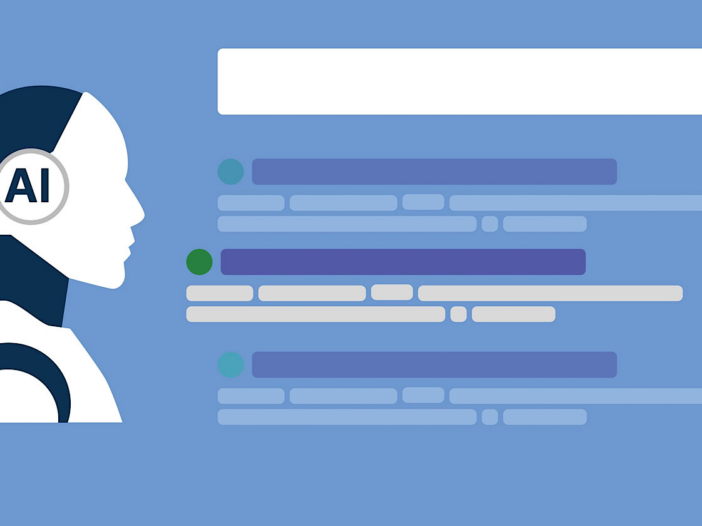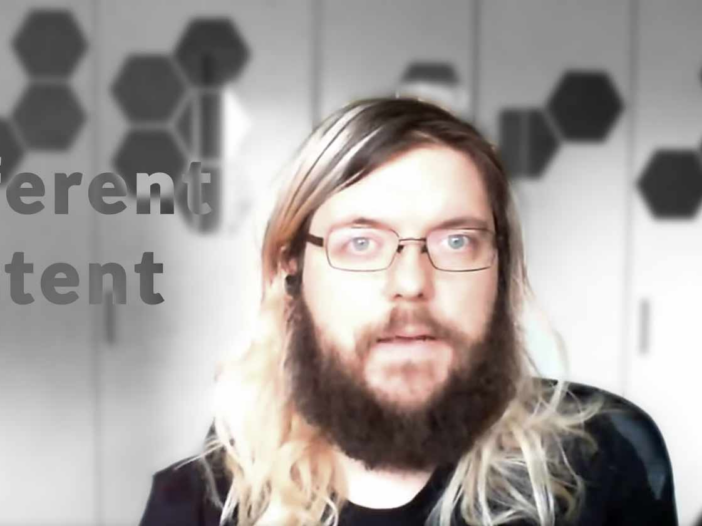sel logo
Search Engine Land » SEO »
Chat with SearchBot
SearchBot:
A fast website isn’t just a nice-to-have, it’s a crucial part of staying competitive online.
This guide covers everything you need to know to boost your page speed and user satisfaction for improved search visibility.
Google’s Core Web Vitals show that website speed and user experience are intertwined.
Users will leave your site if a webpage takes too long to load. That’s nothing new.
Google stated years ago that going from a 1 to 5-second load time will result in 90% of users leaving your site without interacting with it.
So, even if your website ranks high on Google, a slow site will impact your performance.
Why?
As user experience declines, people will exit your site without buying your products, reading your content or interacting with it.
That said, speed goes far beyond just user experience impact. Core Web Vitals makes it clear that speed is an essential factor.
Core Web Vitals (CWVs) are a set of metrics used to evaluate user experience. They measure the following for both desktop and mobile users:
CWVs were introduced in 2020 to provide user-centric, real-world metrics that SEO professionals and site owners can use to measure usability.
Since its release, we’ve seen quite a few updates, the most important being First Input Delay, which Interaction Next Paint replaced. The main elements of CWVs include:
CWVs work to offer a technical SEO aspect with a focus on page experience and usability.
Which element of CWV is most important?
INP is, supposedly, the most important of all CWVs, and I’ve written an entire guide on Optimizing for INP, the new Core Web Vitals metric.
Page experience, which includes Core Web Vitals, is not a direct ranking factor, according to Google.
Google Search Liaison Danny Sullivan clarified on X that while page experience is important, it is not explicitly listed as a ranking factor.
“It doesn’t say it’s a ranking factor. Just like the CWV page doesn’t say that ‘This, along with other. It talks about these things aligning with what we do measure “page experience aspects, aligns with what our core ranking systems seek to reward.’”
Does that mean that page speed is no longer important?
No. Speed is important for websites.
Why?
Search engines aim to offer the best results for search queries.
If a site is slow, isn’t responsive or accessible, and doesn’t perform well on mobile, then it may not be the best result to deliver.
Multiple signals make up page experience, including:
Google states:
“While page experience is important, Google still seeks to rank pages with the best information overall, even if the page experience is subpar. Great page experience doesn’t override having great page content. However, in cases where there are many pages that may be similar in relevance, page experience can be much more important for visibility in Search.”
Google’s statement on page experience shows that if everything else is created equal, page experience may improve visibility in the search results.
While page experience is certainly not the only thing you want to focus on, it’s one more element in your control to improve your site’s visibility on the SERPs.
Page speed is significant because it impacts Core Web Vitals heavily and will improve all three components. To find areas for improvement, run a PageSpeed Insights report.
If you’re not passing all the scores on CWV, you can follow these steps to optimize your page speed.
You can optimize CSS, JavaScript and HTML. Various tools, such as HTMLMinifier, CSSNano and UglifyJS, can help you minify your coding. Minifying means reducing all unnecessary characters.
You can minify CSS, JS and HTML on your own, but using one of the solutions above is much faster and more efficient.
But, after minifying your coding, I recommend:
Sometimes, when you minify your coding, things will break. Once you’re done with minifying, you can remove unused coding.
If you have unused JavaScript or CSS code, remove them. Every little bit helps to reduce file sizes and speed up your site. You can do this in a few ways, but like with minifying, it’s important to analyze your site after removing unused coding.
Google PageSpeed Insights will show you unused coding on your site:
You’ll also see unused JavaScript that you can remove, but you need to work with a developer or know what elements may be used on other pages on the site.
Certain WordPress plugins can help you if you’re using the CMS, including:
Installing caching on the application level can help.
WordPress and most other CMS options have caching plugins that reduce the load on your site’s database and can dramatically improve CWVs.
A few of the top caching solutions for WordPress sites are:
If your site hits a database often, this may be a bottleneck for your site, so something like Memcached may be needed.
A major part of LCP is images and videos.
Compressing all image and video files is best. In most cases, GIFs should be replaced by videos.
If your images or videos are large, consider a content delivery network or third-party hosting. You’ll find plenty of useful guides to help you master video and image optimization:
One way to improve the loading of an image-heavy site is to have asynchronous loading, also called lazy loading, to help speed up your site’s first render. Lazy loading is a bit tricky, but many caching plugins also offer this functionality.
Google Search Central has a guide on how to fix lazy-loaded content to avoid any issues.
If developing for Chrome, you can use the loading=”lazy” attribute for images, but you want to ensure they come after the viewport.
It’s recommended to place images, videos, CSS, JavaScript or any static files on a content delivery network (CDN).
A CDN is an ultra-optimized network with servers worldwide that hosts your files, improves delivery speed and reduces the load on your site’s server.
Where do you begin?
First, select a CDN, and most will have implementation guides for the CMS that you’re using. Some of the many CDNs available include:
Your site may have redirects, which are 100% natural in a site’s evolution.
However, you should remove any redirect chains where one page redirects to another that redirects because they will impact your site’s speed.
As an SEO expert, I recommend you first get up to speed on how redirects work and why they’re so valuable. You can follow this guide to get started: An SEO’s guide to redirects.
If you’re running a popular CMS, it’s not uncommon to have dozens of plugins installed.
You should review all these plugins and replace those that are unused or can be replaced under one plugin.
Start going through each plugin one by one and asking:
Reducing the bloat from your plugins will greatly improve page speed.
Finally, if you’ve done everything else and page speed won’t improve, you may want to upgrade hosting.
Some hosts have slow older systems, but most will allow you to add more RAM and CPUs to help improve site speed if traffic is causing the server to hang.
If you’re running an Apache or Nginx server, you can install the PageSpeed Module on your server. The benefit of this module is that it works on the server level to improve speed, meaning your site’s application will not be altered.
Note: To improve site speed, you may need to work with IT or server administrators to implement some of the changes above.
Get the newsletter search marketers rely on.
See terms.
On top of just focusing on speed, you want to improve page experience using the tips below.
Today, every site needs to be mobile-friendly. Using a responsive design is essential for improving user experience and ensuring accessibility across all devices.
Next, if you follow the speed tips above, you’ll improve mobile site speeds, too.
Finally, consider:
Safe and secure browsing are two elements of a site that you should already be offering. You’ll want to:
Routine monitoring is also essential. If your site is compromised, Google will quickly flag it and cause many would-be visitors to abandon it.
Interruptions are never good for user experience, but they may be necessary to generate revenue or add subscribers to your newsletter. However, you’ll want to do your best to reduce pop-ups and interstitials.
Mobile devices have limited screen space, and if your site has many pop-ups and interstitials, it can make it difficult or impossible to interact with the site, creating a poor page experience.
If your site displays ads, it’s important to consider their impact on page experience.
Ad networks require you to add code to serve ads, but if the network is slow to load, it can significantly reduce your page speed.
You should review:
If an ad network, script or service impacts site speed, it will hurt your page experience.
While page speed’s impact on SEO shouldn’t be the only thing to focus on, it’s an integral part of optimization that is mostly in your control.
Using Core Web Vitals as a guide, your site speed and page experience should improve, potentially boosting rankings.
Contributing authors are invited to create content for Search Engine Land and are chosen for their expertise and contribution to the search community. Our contributors work under the oversight of the editorial staff and contributions are checked for quality and relevance to our readers. The opinions they express are their own.
Related stories
New on Search Engine Land
About the author
Related topics
Get the newsletter search marketers rely on.
See terms.
Learn actionable search marketing tactics that can help you drive more traffic, leads, and revenue.
Available on-demand: SMX Next
Available on-demand: SMX Advanced
Available on-demand: SMX Master Classes
Discover time-saving technologies and actionable tactics that can help you overcome crucial marketing challenges.
April 15-17, 2020: San Jose
Charting the Path Forward: Building a Future-Forward Platform for Retailers in 2025
Get More Out of Your Webinars: Strategies for 24/7 Engagement
How Content is Critical to a Winning Ecommerce Strategy
Enterprise SEO Platforms: A Marketer’s Guide
Email Marketing Platforms: A Marketer’s Guide
Customer Data Platforms: A Marketer’s Guide
The Modern Marketing Data Stack for 2025
Meet your new AI-powered marketing assistant!
Get the newsletter search marketers rely on.
Topics
Our events
About
Follow us
© 2024 Search Engine Land is a Trademark of Semrush Inc.
Third Door Media, Inc. is a publisher and marketing solutions provider incorporated in Delaware, USA, with an address 88 Schoolhouse Road, P.O. Box 3103, Edgartown, MA 02539. Third Door Media operates business-to-business media properties and produces events, including SMX. It is the publisher of Search Engine Land, the leading digital publication covering the latest search engine optimization (SEO) and pay-per-click (PPC) marketing news, trends and advice.
Microsoft’s AI SEO Tips: New Guidance For AI Search Optimization – Search Engine Journal
Download your copy of SEO Trends 2025 and discover what to be hopeful about in a changing search world.
Join us in analyzing 3 case studies that show the importance of driving brand search behavior and engagement, and how to do it in months, instead of years.
Download this guide and learn how to optimize and manage Google Performance Max campaigns, with expert insights and actionable strategies to ensure your campaigns are effective.
Join us in analyzing 3 case studies that show the importance of driving brand search behavior and engagement, and how to do it in months, instead of years.
Join us in analyzing 3 case studies that show the importance of driving brand search behavior and engagement, and how to do it in months, instead of years.
Join us as we dive into exclusive survey data from industry-leading SEOs, digital marketers, content marketers, and more to highlight the top priorities and challenges that will shape the future of search in 2025.
Microsoft shares optimization strategies for AI search engines, focusing on user intent, natural language, and fresh content updates.
Microsoft has provided guidance on how to optimize content for AI-powered search engines.
This advice is timely now that OpenAI has launched ChatGPT Search, which uses Bing’s search index.
Understanding user intent is everything in this new era of search, Microsoft says:
“In the past, digital marketing strategies often relied heavily on demographic data and broad customer segments. But in this era of generative AI, the focus now shifts from who the customer is to what they are looking for—in real-time.”
Microsoft explains several ways websites can optimize content for AI-powered search.
Content should address the underlying purpose of user queries, Microsoft says:
“Focus on the intent behind the search query rather than just the keywords themselves. For example, if based on your keyword research, you find that users are searching for “how to choose eco-friendly coffee makers,” provide detailed, step-by-step guides rather than just general information.”
Websites should leverage NLP techniques to align content with how AI systems process and understand language.
Microsoft states:
“Generative engines, such as Bing Generative Search, deliver content to searchers by understanding and generating human language through Natural Language Processing (NLP). By analyzing vast amounts of text data to learn language patterns, context, and semantics, they’re able to provide relevant and accurate responses to user queries.”
Additionally, Microsoft emphasized the following sentence in italics:
“Leveraging these same NLP strategies in creating your content can optimize it to rank higher, increase its relevance, and enhance its authority, ultimately boosting its visibility and effectiveness.”
To improve your website and landing pages for AI search engines, Microsoft recommends these keyword strategies:
Microsoft encourages keeping content updated and suggests using the IndexNow protocol to quickly notify search engines about website changes.
This helps maintain search rankings and ensures AI systems have the latest information.
Microsoft states:
“While it can be tempting to set it and forget it, AI systems depend on the latest, freshest information to determine the most relevant content to display to searchers. Regularly updating your content not only helps maintain your rankings but also keeps your audience engaged with current and valuable information. This practice can significantly influence how AI systems perceive and rank your website.”
ChatGPT Search now uses Bing’s index, making these optimization strategies vital for websites seeking better visibility in AI-powered searches.
While this can help you create more optimized content, Microsoft acknowledges there’s no “secret sauce” for AI search systems.
Refer to our article on ChatGPT search indexing to ensure your content is indexed in ChatGPT’s real-time search engine.
You can also watch the short video I recorded on this topic below:
Featured Image: jomel alos/Shutterstock
Matt G. Southern, Senior News Writer, has been with Search Engine Journal since 2013. With a bachelor’s degree in communications, …
Conquer your day with daily search marketing news.
Join Our Newsletter.
Get your daily dose of search know-how.
In a world ruled by algorithms, SEJ brings timely, relevant information for SEOs, marketers, and entrepreneurs to optimize and grow their businesses — and careers.
Copyright © 2024 Search Engine Journal. All rights reserved. Published by Alpha Brand Media.
Unforgettable Journey of Seo Hyun Jin: A List of Her Most Iconic Roles – allkpop
21
1
Seo Hyun Jin is a name synonymous with versatility and raw talent in the South Korean entertainment industry. From her humble beginnings in the K-pop girl group M.I.L.K to her rise as one of Korea’s most beloved actresses, Seo Hyun Jin has steadily captivated audiences with her depth, charm, and commitment to every role she undertakes.
Known for her emotionally rich performances and uncanny ability to make each character unforgettable, Seo Hyun Jin has solidified her place in the hearts of drama fans worldwide. Here’s a look at why she remains one of the most celebrated figures in K-drama.
“The Duo” (2011)
Seo Hyun Jin first drew the attention of audiences for being an actress for her amazing performance as Dal Yi in the drama series, “The Duo”. Dal Yi is a neighborhood tomboy who later becomes a gisaeng. She is also in an unfortunate story of love, as Dal Yi has loved her childhood friend who lives in a much different and higher than her class.
“Feast of the Gods” (2012)
In this culinary-themed drama, Seo Hyun Jin played Ha In Joo, the daughter of Sung Do Hee (Jeon In Hwa). As her mother is appointed as the successor of the renowned restaurant, Arirang, she gets caught in a rivalry which causes loss and sadness. She eventually grows to be a talented chef interested in becoming Arirang’s future successor, which unravels the secrets behind her identity and even their pasts. This early role showcased her emotional range and helped build her reputation in the industry. Her performance was also recognized during the 2012 MBC Drama Awards as she won the Excellence Award for an Actress in a Serial Drama.
“Goddess of Fire” (2013)
In this historical drama, Seo portrayed Shim Hwa Ryung, a skilled ceramic artist with a tough spirit and dreams of becoming the first female ceramist in Joseon. As she later acquired money and power, she did what she could to achieve her dreams and persevered, despite suffering from an unrequited love. Her role brought a balance of passion and resilience, which helped further establish her versatility as an actress, and won the Excellence Award for an Actress during the 6th Korea Drama Awards.
“The Three Musketeers” (2014)
In the drama “The Three Musketeers” based on Alexandre Dumas’ novel with the same title, Hyun Jin played Kang Yoon Seo, a character based on Anne of Austria, who is a princess entangled in palace politics and romance. This role added depth to her portfolio and allowed her to explore historical storytelling, adding another layer to her growing skill set.
“Another Miss Oh” (2016)
One of the highest-rated Korean dramas in cable television history, Seo Hyun Jin portrays Oh Hae Young in “Another Miss Oh” as an ordinary woman whose life takes a twist after her fiancé suddenly calls off their wedding. She eventually gets entangled with another man, who has unknowingly caused her failed engagement after mistaking her for someone with the same name. Her charming, relatable performance earned her the Excellence Award for an Actress in a Miniseries at the 5th APAN Star Awards, Romantic-Comedy Queen and Made in tvN, Actress in Drama during the tvN10 Awards, and the Best Actress Award during the prestigious 53rd Baeksang Arts Awards, making this role a turning point in her career.
“Dr. Romantic” (2016-2017)
Seo Hyun Jin starred as Yoon Seo Jung, a passionate but troubled doctor who leaves Geosan University Hospital after a traumatizing incident that left her with huge guilt. She eventually decides to work at Doldam Hospital under the mentorship of Kim Sa Bu (Han Suk Kyu), whom she admired as her teacher and mentor, especially after he saves her during an accident. Her portrayal was critically acclaimed, winning her the Excellence Award for an Actress in a Genre Drama and Top 10 Stars at the SBS Drama Awards and marking her as one of the industry’s most respected talents.
“Temperature of Love” (2017)
Seo Hyun Jin took on the role of Lee Hyun Soo, an aspiring screenwriter using the username Jane who spent ten years as an assistant writer. She met someone online with whom she soon developed a relationship when they met in person, but then got separated after choosing different paths for their careers. Her performance in this drama earned her the Best Actress Award during the 30th Grimae Awards, adding another milestone to her career.
“The Beauty Inside” (2018)
Playing Han Se Gye, Seo Hyun Jin takes on another challenge as she portrays a character who mysteriously changes physical appearance. Se Gye is a top actress who is the subject of numerous rumors as she occasionally suddenly disappears from public view due to a mysterious phenomenon where she transforms into someone else for a week every month. This role has further solidified her status as one of the actresses who can effectively handle complex roles.
“Black Dog: Being A Teacher” (2019-2020)
In this drama, Seo Hyun Jin plays Go Ha Neul, a high school teacher navigating the ethical and emotional challenges of her profession. Inspired to teach by a teacher who once saved her as a student, Ha Neul joins a private high school as a temporary teacher. Through her experiences, she faces various struggles that ultimately lead to her growth, both professionally and personally. Seo Hyun Jin’s realistic portrayal earned positive reviews, highlighting her versatility as an actress.
“You Are My Spring” (2021)
In the series, “You Are My Spring”, Seo Hyun Jin portrayed Kang Da Jeong, a concierge manager with a history of bad relationships who moves to the rooftop of the Gugu building for a fresh start. Her path takes an unexpected turn when she and a neighbor witness a murder in their apartment building, drawing them into a complex web of mystery. Yet, as they navigate this dark scheme together, their newfound bond might be exactly what they need to find healing—not only from the mystery but from the wounds of their pasts. Her performance added another layer of complexity to her acting career and resonated well with audiences.
“Why Her?” (2022)
Hyun Jin took on the fierce role of Oh Soo Jae, a brilliant, ambitious lawyer and the youngest partner at South Korea’s top law firm, TK Law Firm. Known for her self-righteous drive to win cases, she has focused her life solely on success, which has left her feeling empty. However, after an unexpected incident, she is demoted to an adjunct professor position at Seojung University Law School, forcing her to confront new challenges outside the courtroom. Her work on this drama brought her further acclaim and demonstrated her growth and maturity as an actress, and won the Top Excellence Award for an Actress in a Miniseries Genre/Fantasy Drama during the 2022 SBS Drama Awards.
“The Trunk” (2024)
In her upcoming series with Gong Yoo, “The Trunk”, Seo Hyun Jin stars as Noh In Ji, an employee at NM (New Marriage), a company specializing in one-year contract marriages. Despite her role in facilitating temporary unions, Noh In Ji feels a deep loneliness within her contract marriage. Her life takes a dramatic turn when a mysterious trunk is discovered, setting off a chain of events that disrupt her work and personal life.
Seo Hyun Jin’s evolution from idol to one of South Korea’s most respected actresses speaks to her dedication, resilience, and extraordinary talent. Her ability to make every character feel relatable, raw, and real has cemented her status as a star. As we look forward to her next projects, one thing is certain: Seo Hyun Jin will continue to amaze us with her unforgettable portrayals.

Comedian under fire for excessive use of NewJeans in his content
BLACKPINK’s Rosé shares teasers of all the songs from her highly anticipated solo album ‘Rosie’
SEND
Two Podcasters & Endless OSINT Gold with Aubrey Byron and Shannon Ragan – The CyberWire
Google: Different Content for Googlebot & Users Can Be OK – Search Engine Journal
Download your copy of SEO Trends 2025 and discover what to be hopeful about in a changing search world.
Join us in analyzing 3 case studies that show the importance of driving brand search behavior and engagement, and how to do it in months, instead of years.
Download this guide and learn how to optimize and manage Google Performance Max campaigns, with expert insights and actionable strategies to ensure your campaigns are effective.
Join us in analyzing 3 case studies that show the importance of driving brand search behavior and engagement, and how to do it in months, instead of years.
Join us in analyzing 3 case studies that show the importance of driving brand search behavior and engagement, and how to do it in months, instead of years.
Join us as we dive into exclusive survey data from industry-leading SEOs, digital marketers, content marketers, and more to highlight the top priorities and challenges that will shape the future of search in 2025.
In a recent JavaScript SEO Office Hours, Google’s Martin Splitt was asked to define what constituted cloaking.
Splitt discussed different ways that it was OK for content to be different and still not be considered cloaking.
The publisher asked about the “gray line” between cloaking and not cloaking.
“Can you go into more detail what is considered as cloaking and what’s not? Where’s the gray line?”
Cloaking is showing Google a page of content and showing users a different page of content.
Splitt indicated there are different levels of cloaking where one form is acceptable and another is not.
A gray line is by definition a murky area.
An example can be like dusk, where it’s neither day or night, so what part of dusk is night and what part is day?
There may have been a language issue and what the publisher may have intended was to know is where the line is that can’t be crossed.
Martin Splitt answered:
“Where’s the gray line I can’t do much in terms of giving too much detail for that.
But fundamentally cloaking means misleading the user.
That means if I see a Googlebot is requesting my website and say this website is about kittens and butterflies and then when it’s a user going to that website (instead of Googlebot) having… like an online drugstore or trying to sell knockoff products, so something like that.
That would be very much against the intention of the user and that would not match what we would show in search results if the user searches for cute kitten or something like that.
So that’s very very clearly cloaking.”
Splitt followed up with describing scenarios where showing different content is okay.
This is how Splitt explained it:
“What isn’t cloaking is if my website content is slightly different. Because we all know that with responsive web design we might have slightly different content to begin with.
On a mobile phone I might only load one product instead of ten products… and then have the user click through multiple pages or something like that.
That’s not cloaking. That’s just slightly different content depending on what the browser can do or what the device capabilities are, that is fine.”
That’s great to hear.
I know with forum software publishers are able to assign forum permissions to bots in order to keep them from seeing off-topic sub-forums that exist for social bonding and not for the core topic of the entire forum.
For something like that an admin can restrict non-registered users as well as Google.
That way, the content is the same for Google and non-registered users and never rank in Google at all.
Yet it can still exist for registered users.
So that’s a case that in my opinion should be fine according to how Splitt defines it.
Ultimately the line between cloaking and not cloaking is defined by if a publisher is misleading someone who is searching on Google.
Here’s how Splitt wrapped up his answer:
“If you show slightly different content for Googlebot than for real users like notification or a pop-up that doesn’t show when Googlebot comes in that is mostly fine.
Unless it is like a pop-up that has ninety percent of the content in it and on the actual page it is only an image, then we are again like… uhmmmm… does t hat still fall within like the user sees what the user expects or what we saw as Googlebot?
But generally speaking as long as you’re not misleading the user you’re definitely on the safe side.
What you shouldn’t be doing is you should’t be misleading your user.”
So it could be said that the line between bad cloaking and not cloaking in terms of what will get penalized, as long as you’re not misleading users then having content that is a little different is OK.
Anything that is within reasonable bounds of that is not a problem.
I have 25 years hands-on experience in SEO, evolving along with the search engines by keeping up with the latest …
Conquer your day with daily search marketing news.
Join Our Newsletter.
Get your daily dose of search know-how.
In a world ruled by algorithms, SEJ brings timely, relevant information for SEOs, marketers, and entrepreneurs to optimize and grow their businesses — and careers.
Copyright © 2024 Search Engine Journal. All rights reserved. Published by Alpha Brand Media.
Targeted SEO Strategies Enhance Online Reach For Car Rental Businesses – Business
Press Release – TomMcSherry.com
These SEO strategies focus on comprehensive keyword research to capture user intent, as well as optimising Google Business Profiles to enhance local search results. By implementing multi-location SEO approaches, car rental businesses with several branches …
Car rental companies are increasingly adopting specialised search engine optimisation (SEO) strategies to strengthen their digital presence and reach more potential customers. With high competition in the car rental industry, tailored SEO practices are becoming essential for businesses aiming to improve visibility in search results.
These SEO strategies focus on comprehensive keyword research to capture user intent, as well as optimising Google Business Profiles to enhance local search results. By implementing multi-location SEO approaches, car rental businesses with several branches can reach a wider audience across various regions. Such targeted efforts enable these companies to appear in relevant searches, ultimately driving higher engagement and bookings.
One of the trusted providers in this field is Tom McSherry, whose expertise and services focus on effective SEO for rental car companies. With a deep understanding of the car rental market’s digital requirements, these specialised SEO strategies offer a pathway for car rental businesses to improve their online footprint and stay competitive.
As car rental businesses look to boost their visibility in an evolving digital landscape, industry-specific SEO practices have proven effective in helping them reach customers precisely when they’re needed most. The focus on local and multi-location SEO supports car rental companies in enhancing their presence within the communities they serve, aligning with search trends that prioritise proximity and relevance.
Content Sourced from scoop.co.nz
Original url
Recent Comments
- Ross Clark: “they would say this, wouldn’t…
- Ross Clark: … which is close to ten perc…
- Ross Clark: This is an excellent initiativ…
- Ross Clark: Press freedom really is a two-…
- Andrew: Why don’t the ISP’s and/or gov…
- Gail: I agree. New Zealand needs to …
- Sharon Plunkett: Well done Peter. We are very p…
- Ross Clark: The whole issue is: who pays? …
- Dennis Ramsay: There are so few carparks at t…
- Lan: Unbelievable that a WEST AUSTR…




